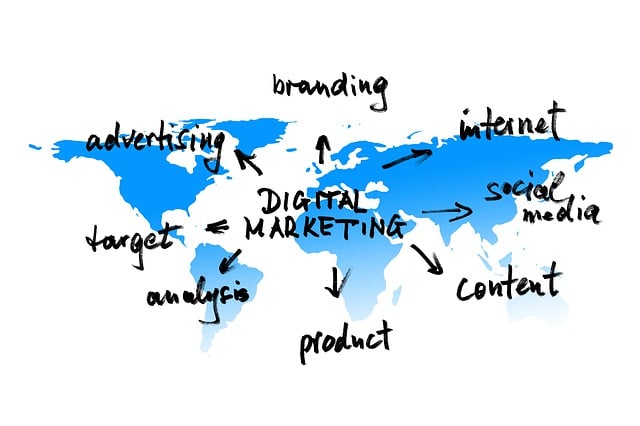In today's digital age, Artificial Intelligence (AI) has emerged as a powerful asset for businesses, particularly through AI consulting firms offering tailored solutions like advanced AI competitor price tracking tools. These tools utilize machine learning to monitor market trends and competitors' pricing strategies in real-time, enabling businesses to optimize costs, enhance revenue, and stay ahead in a dynamic competitive landscape. Developing an effective AI consulting strategy involves analyzing the organization's current standing, understanding its unique needs, benchmarking against peers, setting realistic goals, and prioritizing AI implementations that deliver tangible outcomes aligned with the company's strategic vision.
In today’s digital era, Artificial Intelligence (AI) is no longer a futuristic concept but a strategic imperative. Understanding AI’s role in business strategy is crucial for staying competitive. This article explores key components of AI consulting, focusing on how businesses can leverage AI to gain insights and make informed decisions. Specifically, we delve into the impact of AI competitor price tracking tools, which enable dynamic pricing strategies and enhance market positioning. By adopting effective AI consulting strategies, organizations can revolutionize their operations and stay ahead in a bustling marketplace.
- Understanding AI's Role in Business Strategy
- The Impact of AI Competitor Price Tracking Tools
- Developing an Effective AI Consulting Strategy
Understanding AI's Role in Business Strategy

In today’s digital era, Artificial Intelligence (AI) has evolved from a mere concept to a powerful tool that can significantly impact business strategies. Understanding AI’s role in business strategy is crucial for staying competitive. AI consulting firms offer strategic insights and solutions tailored to help businesses leverage AI technologies effectively. These include AI competitor price tracking tools, which enable companies to monitor market dynamics, analyze competitors’ pricing strategies, and make data-driven decisions to optimize their own pricing models.
By integrating AI into business operations, companies can enhance decision-making processes, automate routine tasks, and gain valuable insights from vast amounts of data. This not only improves efficiency but also allows businesses to stay ahead of the curve by identifying emerging trends and patterns that traditional methods might miss. With AI consulting, organizations can navigate this ever-changing landscape, ensuring they maintain a competitive edge in their respective industries.
The Impact of AI Competitor Price Tracking Tools

In today’s competitive business landscape, AI competitor price tracking tools have emerged as indispensable resources for companies seeking strategic advantages. These advanced technologies enable businesses to monitor their competitors’ pricing strategies in real-time, providing valuable insights into market dynamics and customer behavior. By leveraging machine learning algorithms, these tools analyze vast amounts of data from various sources, such as e-commerce platforms, social media, and industry reports, to identify pricing trends and shifts.
This capability empowers businesses to stay ahead of the curve by quickly adapting their own pricing strategies. They can detect competitive price changes promptly, allowing them to make informed decisions on whether to adjust their prices accordingly, maintain their current strategy, or even capitalize on opportunities presented by competitor moves. Such tools offer a significant edge in terms of cost optimization and revenue generation, making them valuable assets for any AI-driven business consulting strategy.
Developing an Effective AI Consulting Strategy

Developing a robust AI consulting strategy is pivotal for businesses aiming to integrate artificial intelligence effectively. The first step involves assessing the organization’s current landscape, identifying pain points, and understanding its unique needs. This includes analyzing competitors’ strategies, especially regarding AI-driven price tracking tools, to gauge market trends and potential gaps in the client’s offerings. By benchmarking against peers, businesses can set realistic goals and prioritize AI implementations that yield tangible results.
For instance, monitoring competitors’ pricing strategies using AI tools allows companies to stay agile and responsive to market dynamics. This proactive approach enables better cost management and competitive positioning. When crafting a strategy, it’s essential to define clear objectives, whether it’s enhancing customer experience, optimizing operational efficiency, or gaining a competitive edge. Such clarity guides the selection of appropriate AI technologies and ensures that consulting efforts are aligned with the business’s strategic direction.
In today’s competitive landscape, strategic AI consulting is no longer an option but a necessity for businesses aiming to stay ahead. By understanding the pivotal role of artificial intelligence in shaping business strategies and leveraging powerful tools like AI competitor price tracking mechanisms, companies can gain significant advantages. Implementing effective consulting strategies ensures businesses not only keep pace with technological advancements but also revolutionize their operations, fostering growth and competitiveness in an increasingly digital era.
